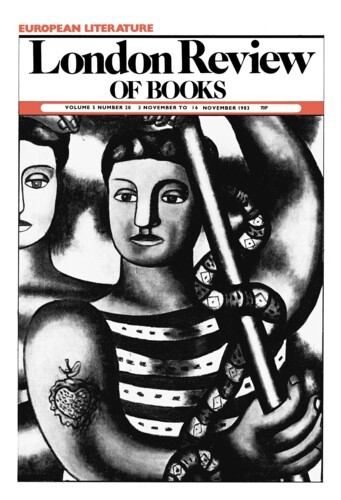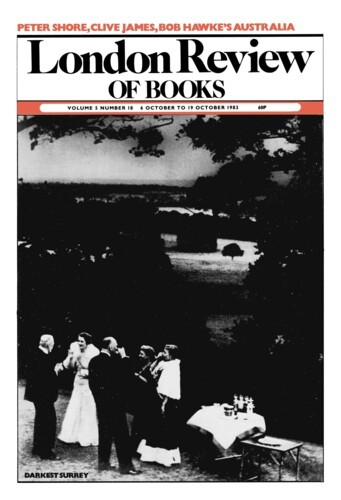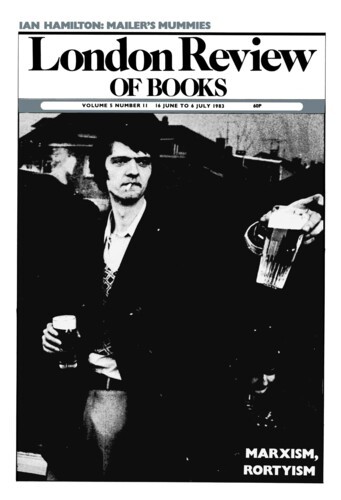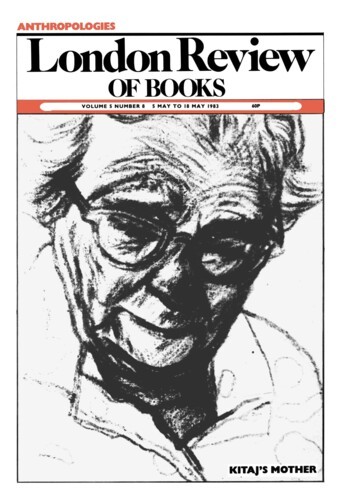Accidents of Language
John Lucas, 3 November 1983
In the issue of Agenda for Spring 1983 there is an essay by Geoffrey Hill which will obviously become required reading for anyone who is seriously interested in his poetry. ‘Our word is our bond’ is in many ways an apologia for Hill’s view of poetry and, more particularly, for his sense of himself as poet. It is as dense and allusive as much of his poetry, and so closely argued that it’s almost impossible to tease out individual threads without running the risk of damaging the entire fabric. Still, the risk is worth taking, if only because to do so helps with the reading of his new, long poem, in the publication of which Agenda had a hand.




